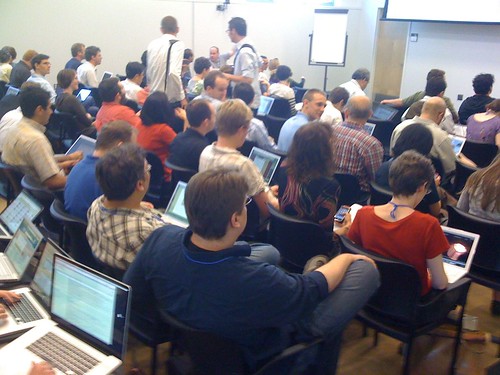BootCamp Curriculum
All workshops should be introductory (especially those dealing with markup and programming languages; assume no prior knowledge of coding) and should emphasize first principles, background, and context; workshops other than those under the first two headings should also include at least one hands-on exercise. Workshop examples are given below; other pertinent workshops are more than welcome.
1. Understanding the history of technology and the humanities
1. Brief history of computing
2. Brief history of Digital Humanities
2. Understanding ongoing legal and social issues related to technology and the humanities
1. Copyright issues in the humanities
2. Economic issues in scholarly communication
3. The Google Book Search settlement
3. Finding and managing humanities information
1. Google Scholar / databases
2. Google Book Search
3. Zotero / Mendeley / CiteULike
4. Digitizing, editing, organizing, publishing, and preserving humanities materials
1. Text / image / audio / video digitization
2. XML
3. XSLT
4. TEI
5. EAD
6. Omeka
7. Metadata standards
8. Indexing
9. Linked data
10. Databases and data structures
5. Collecting, interpreting, analyzing, and manipulating humanities data
1. Text mining tools
2. Visualization tools
3. Web analytics
4. Yahoo! Pipes
5. Open Layers
6. ARCGIS
6. Creating, presenting, and publishing humanities study
1. HTML
2. CSS
3. Graphic design
4. Information architecture
5. Typography
6. Usability testing
7. CommentPress / digress.it
8. WordPress
9. PowerPoint / Keynote / Prezi
10. Video creation
11. Audio / podcast creation
7. Working collaboratively, both formally and informally
1. Project management
2. Project budgeting
3. Getting project funding
4. Wikis
5. Google Docs
6. Social media
8. Using programming languages and tools
1. JavaScript
2. PHP
3. MySQL
4. UNIX
5. Perl
6. Regular expressions
7. Google Inventor for Android


